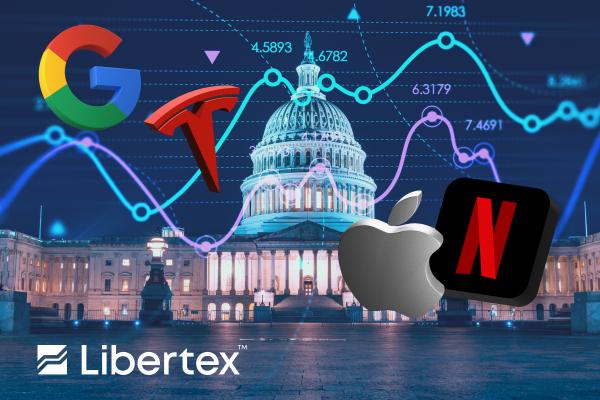Love him or hate him, there's no denying Donald Trump's power to move markets — even before he's stepped foot back inside the White House. And now, almost a full month since Trump beat the odds to win both the public vote and the Electoral College in the US presidential election, we can begin to assess what a Trump presidency might mean for US equities. A famous firebrand, Trump's bombastic rhetoric on China and strong support for free market capitalism have had mixed effects on the US stock market. In the days immediately following the Republican's victory, both the S&P 500 and Nasdaq 100 shot up in response but then quickly corrected soon after. But following a period of more steady growth, both key indices are up around 5% and 4%, respectively, since election night and currently sit close to their latest ATHs at 5,998.74 and 20,744.49 (28/11).
However, with a potential trade war looming and multiple regional conflicts escalating to worrying levels, analysts are rightly wondering whether The Donald will be able to keep the bears in hibernation this winter. Yet the macroeconomic picture remains largely positive, and the lower-rate environment should help buoy risk assets like equities. So, what is likely to be the long-term impact of a Trump White House on US stocks, and what are the factors to watch in 2025?
Actions not deeds
As the world noticed in his first term, Donald Trump has a penchant for speaking his mind, which can occasionally lead to him making inflammatory comments and even threats. However, what he actually does tends to be much more tempered and considered. So, while we have had talk of 100% and higher tariffs on Chinese goods, it would be wise to view this more as an attempt to gain an advantage in any negotiations with Xi Jinping once in office and avoid escalation in Taiwan by setting clear red lines now.
As a businessman, Trump is aware of how important Chinese manufacturing is to the health of the US economy and would ensure that any sanctions inflict a minimum of damage on the US. This is even more likely following the appointment of Elon Musk, whose Tesla business collaborates closely with the Chinese battery producer Contemporary Amperex Technology Company (CATL). The newly announced level of an additional 10% tariff on Chinese goods seems reasonable and will provide a strong basis for negotiation with the CCP. Eyebrows were, however, raised by his announcement of a 25% tariff on Canadian and Mexican imports, which total $475 billion and $418 billion annually. The automotive and agriculture industries will be worst affected by the move, but the net effect on key US indices is unlikely to be significant.
Just one man
Despite the press's tendency towards sensationalism, especially on the topic of Trump, we have to remember that his influence only extends so far. There are numerous other macroeconomic and geopolitical factors that will have just as much, if not more, of an impact on US stocks through to the next year. Escalating tensions in the Middle East, for instance, could easily lead to a wider regional war that would inflate oil prices far more than Trump's tariffs on Canada ever will. As sad as it is, war can, of course, be good for business, too, and the US's numerous defence contractors like Raytheon, Boeing, and Lockheed Martin would surely benefit from increased conflict.
While Trump's policy can shape outcomes here, the bulk of the influence lies in Jerusalem and Tehran. Closer to home, the impact of lower interest rates has been extremely positive for equities. However, it was hoped that the Federal Reserve would continue its rate-cutting crusade and stimulate risk assets even more before the end of 2024. However, yesterday's (27/11) inflation figures of 2.6% — up 0.2% year over year versus last month — have thrown a bit of a spanner in the works. As much as the Fed wants to continue with its dovish policy, an increase in price pressure will, at the very least, mean they are forced to take a wait-and-see approach. This could depress stocks briefly, but the uncertainty of elevated inflation would surely prove worse for US indices over the long term.
Trade CFDs on stocks and more with Libertex
With Libertex, you can gain exposure to US equities through stocks, indices, and ETFs through CFDs. And since Libertex offers both long and short positions — with or without leverage — you can be certain you will find an underlying asset and direction to suit your needs. You can trade CFDs in the S&P 500, Nasdaq 100, or Dow Jones Institutional Average directly within Libertex's multi-award-winning app. For more information or to create an account of your own, visit www.libertex.com today!


